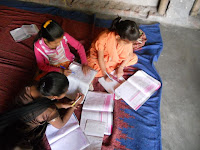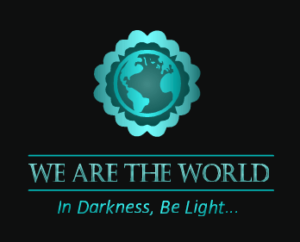Industries in which very heavy types of raw material are used are known as heavy industry. This is not a joke! This is the definition of heavy industry as it appears in the class VIII book of the Punjab School Education Board. God help the children of India as this is not the only aberration one finds in text books across the land. A recent article in a weekly tells how schools are becoming laboratories of disaster in which children are being fed not just inaccurate information but also politically coloured rendition of reality.
The examples given in the said article are numerous, each more preposterous than the other: from to historical bloopers, grammatical slip ups and glaring omissions making a history professor call the text books disabling ones and state that they (the students) would be better off not reading such books. These text books are published by state education boards and used by the poorest students.
In the same magazine is another article by an eminent educationist entitled: the primary crime. It is not, as one may construe from the title, a write up on murder or theft. The article recounts the sorry state of primary teachers in our country. The author states quite justifiably that primary teaching is the last resort in the quest for employment. And all primary teachers have only one objective in mind: to move up. A nation’s economic and social well being depends on the quality of its pre-primary and primary education. Alas that is not the case in India. Primary teachers are often the least paid and the least respected. In certain states primary classes were taught by para teachers with fancy names – shiksha mitra, guruji, vidya volunteers – who were often paid a fraction of what the regular salary. This drama has been going on for a decade resulting in a whole generation of children with poor literacy and numeric skills. And now to meet the new student teacher ratio of 1.30 that is supposedly to be implemented by 2013 states have resorted to distance mode teaching. One can only imagine the results of such an enterprise. It is time we restored the dignity of the primary school teacher.
I wonder how each one of us who belong to a ‘certain’ strata of society would react if our daughter decided to marry a primary school teacher! We all know the answer. On the other hand we have had over the last decade volunteers from many parts of the planet studying in top institutions who want to be primary school teachers. One such volunteer is a Rhodes Scholar! But I cannot in my wildest dream conjure any of the young off springs of family and ‘friends’ deciding to become primary school teachers! It is sad as good primary teachers are the need of the hour. Imagine the difference it would make to the life of a slum child if her teacher was one of us. Dream on Anou!
The Right to Education took an incredibly long time to legislate. But how can the children of India aspire to quality education if there are no quality teachers. If nothing is done to set up enabling infrastructure, correct and accurate text books and train caring and motivated teachers willing to take on the challenge of educating the poorest of the poor, then the Right to Education will simply be another meaningless peace of legislation.
Note: the articles referred to in this blog appeared in India Today (March 19th). I was unable to find them on the Internet.





